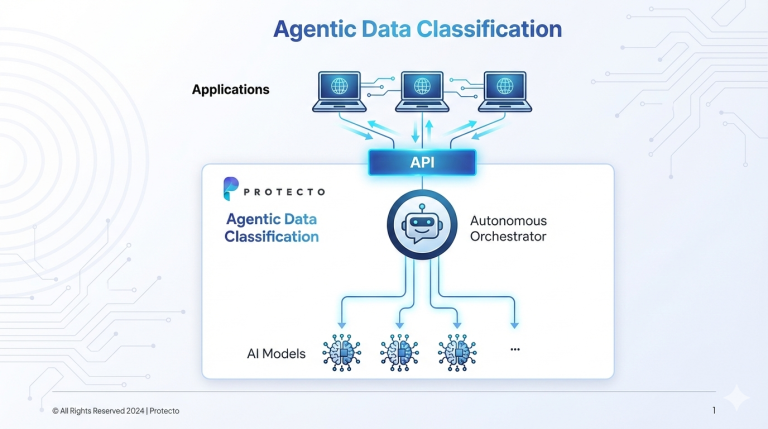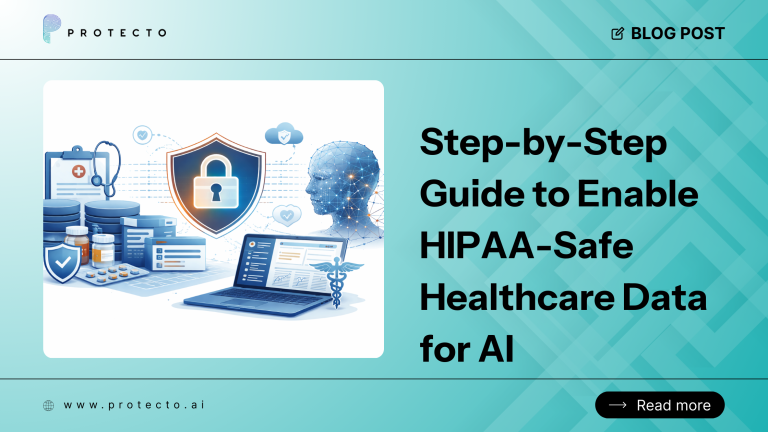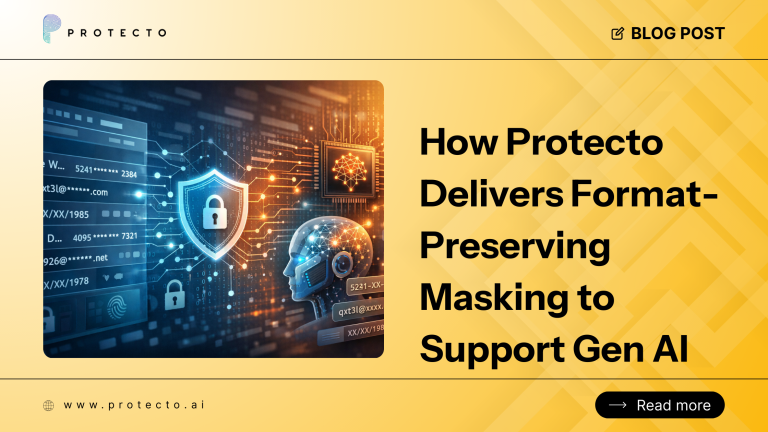The integration of generative AI (GenAI) into healthcare holds tremendous potential for transforming patient care, diagnostics, and operational efficiency. However, developing these applications faces numerous challenges that must be addressed to ensure compliance, accuracy, and security. Here are the top challenges in building healthcare GenAI applications:
1. Regulatory Compliance with PHI Data
Protected Health Information (PHI) is heavily regulated under laws like the Health Insurance Portability and Accountability Act (HIPAA) in the United States. Mishandling PHI can lead to severe penalties and legal repercussions. Ensuring that GenAI systems comply with HIPAA and other global privacy regulations is a fundamental challenge.
2. Accuracy and Cost of Inaccuracy
Inaccurate AI recommendations in healthcare can have dire consequences for patient outcomes and financial costs. Large Language Models (LLMs) can sometimes deliver unpredictable, inconsistent, and inaccurate results, known as hallucinations. Using LLMs for healthcare requires the necessary controls and architecture to deliver highly accurate and reliable results.
3. Restrictions on Public LLMs and Cloud Solutions
Major healthcare organizations often restrict the use of public large language models (LLMs) and cloud-based solutions due to privacy concerns. Given the lack of clarity on federal AI laws and internal policies on using public LLMs, on-premises deployments are preferred to maintain control over sensitive data.
4. Specific Data Privileges and Permissions
Different departments within healthcare organizations, such as labs and pharmacies, require access to specific subsets of patient data. Managing these data privileges in GenAI apps and ensuring that only authorized personnel have access is complex, as controls on GenAI are still evolving.
5. Explainability of AI Responses
In healthcare, the explainability of AI-generated responses is critical. Clinicians and patients must understand how the AI arrived at a particular recommendation or decision, especially when it involves health outcomes. The complexity of LLMs and architectures such as RAG (Retrieval-Augmented Generation) requires effort to ensure transparency.
6. Integration with Legacy Systems
The healthcare industry often relies on legacy systems, some of which still use paper-based records. Integrating these systems to develop modern GenAI applications poses significant technical challenges, including data extraction and refreshing.
7. Data Readiness for GenAI
Healthcare data often exists in complex formats, including scanned documents, PDFs, forms, and lab notes. Preparing this data for processing by GenAI systems requires significant pre-processing effort, making it a major challenge. Moreover, these steps must be done periodically to update GenAI applications with the latest data.
The Good News
GenAI is evolving rapidly, and many healthcare organizations are adopting it with proper guardrails such as Protecto. By leveraging advanced data protection and management tools, healthcare organizations can safely and effectively integrate GenAI into their operations, unlocking the potential for improved patient care and operational efficiency.
Overcoming the Challenges with Protecto
Protecto offers comprehensive solutions to many of these challenges:
- Ensuring Compliance: Protecto helps healthcare organizations comply with regulations such as HIPAA by securely handling PHI data.
- Preserving Data Utility: Protecto’s intelligent tokenization maintains data format and structural integrity, ensuring that AI models retain context and accuracy.
- Enhancing Security: Protecto enhances security through robust data protection measures, reducing the risk of data breaches and unauthorized access.
- Flexible Deployment: With support for both cloud and on-premises deployments, Protecto provides solutions that align with healthcare organizations’ security policies.
- Role-Based Access Control (RBAC): Protecto enhances RBAC through secure tokenization of sensitive data, minimizing unauthorized access risks.
When addressing privacy and security through data masking, it is essential to preserve the context of the data. Losing this context can lead to inaccurate or incomplete results, which is particularly detrimental in healthcare.
For more information on how Protecto can help your organization navigate these challenges, visit www.protecto.ai or contact us for a free consultation.




